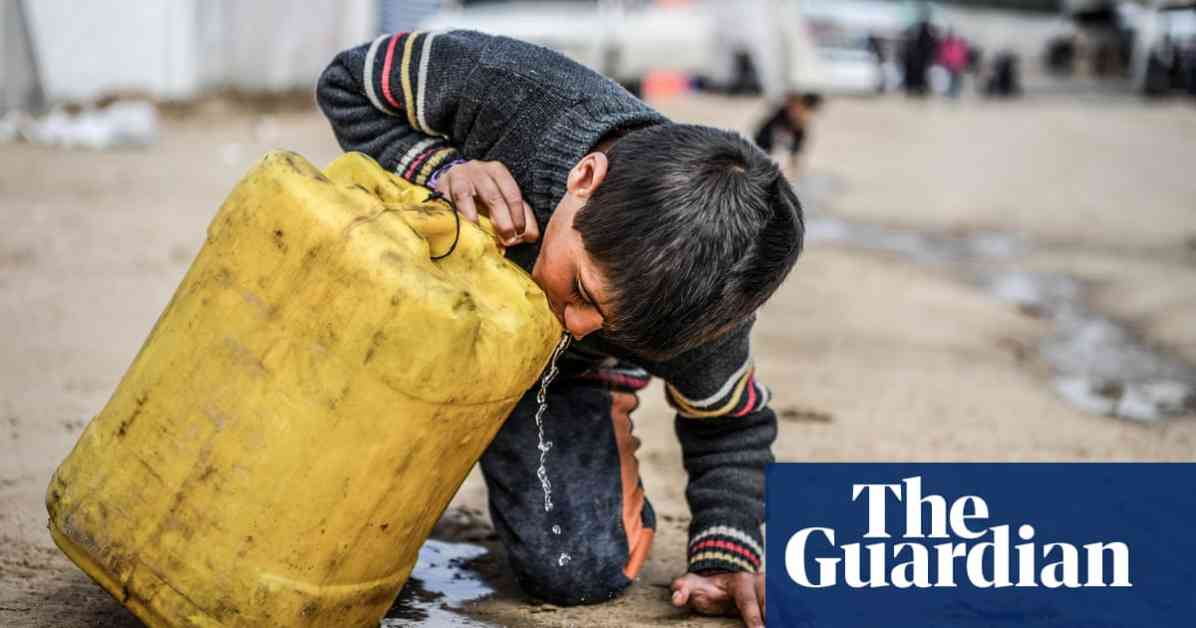More than half of the world’s food production could be in jeopardy within the next 25 years due to a rapidly escalating water crisis that is affecting the planet. Experts have issued a warning that urgent action needs to be taken to conserve water resources and prevent the destruction of ecosystems that are crucial for our fresh water supply. The Global Commission on the Economics of Water recently published a report stating that half of the world’s population already faces water scarcity, and this number is expected to increase as the climate crisis worsens.
According to the report, the demand for fresh water is projected to exceed supply by 40% by the end of the decade, putting immense pressure on the world’s water systems. The experts also highlighted that the amount of water needed for people to lead decent lives has been vastly underestimated. While health and hygiene require 50 to 100 liters of water per day, individuals actually need around 4,000 liters daily to ensure adequate nutrition and a dignified life. This poses a significant challenge as most regions cannot achieve this volume locally, leading to a dependency on trade for essential goods.
The report emphasizes the importance of “green water,” which is soil moisture essential for food production, as opposed to “blue water” from rivers and lakes. Water moves globally through “atmospheric rivers” that transport moisture from one region to another. Countries like China and Russia benefit from these systems, while India and Brazil serve as major exporters of green water to other regions. The interconnectedness of water systems highlights the need to view fresh water as a global common good that requires collaborative efforts among nations.
Governments and experts must focus on preserving water sources, using water more efficiently, and ensuring equitable access to fresh water for all communities, including vulnerable populations. The Global Commission on the Economics of Water underscores the urgency of addressing harmful subsidies that distort water systems, particularly in agriculture and industry. Redirecting subsidies towards more sustainable practices and ensuring that profits benefit productive activities are crucial steps in mitigating the water crisis.
Women and girls are disproportionately affected by water issues, facing challenges such as the burden of water collection, food security, and gender disparities. The report stresses the need for developing countries to receive financial support to enhance water systems, provide safe water and sanitation, and protect natural environments. Loans provided by public sector banks to these nations should be contingent on implementing water reforms that promote conservation and efficiency in water use.
In conclusion, the water crisis is a pressing global issue that requires immediate action and cooperation among nations. By recognizing water as a common good and implementing strategies to address water scarcity, countries can work towards securing a sustainable future for all. Efforts to reform subsidies, improve water management, and empower vulnerable communities are essential in tackling the looming water crisis and ensuring access to safe water for generations to come.












